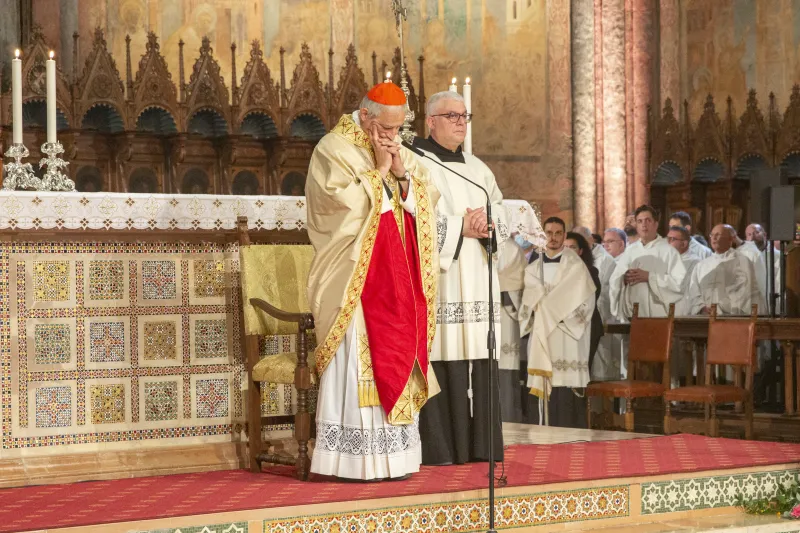
Rome Newsroom, Oct 4, 2022 / 10:00 am (CNA).
On the feast of St. Francis on Tuesday, Cardinal Matteo Zuppi offered Mass in Assisi in the basilica that holds the 13th-century saint’s tomb.
“St. Francis helps us not to run from suffering,” Zuppi said in his homily on Oct. 4.
The cardinal and president of the Italian bishops’ conference recounted how St. Francis had been repulsed by the sight of lepers at first but experienced a transformation when he encountered them in person.
St. Francis recorded in his testament: “While I was in sin, it seemed very bitter to me to see lepers. And the Lord himself led me among them and I had mercy upon them. And when I left them that which seemed bitter to me was changed into sweetness of soul and body.”
Zuppi said that everyone can experience this same transformation in which “what before seemed burdensome, a deprivation, an impossible sacrifice becomes instead a source of sweetness and awareness of humanity.”
“Helping others leads us to find ourselves. This is the sweet and gentle yoke that unites us to the one who first bound himself to us, Jesus, in a bond of love that frees us from the heavy and unbearable yoke of individualism,” he said.
Italian President Sergio Mattarella, present in the Basilica of St. Francis for the feast day Mass, lit a votive lamp and gave a speech about the patron saint of Italy.
Pope Pius XII declared St. Francis the patron saint of Italy in 1939 along with St. Catherine of Siena. The founder of the Franciscan order is affectionately known in Italy as the Poverello (Poor Little Man).
The Italian president said that peace has been “betrayed right in the heart of Europe” with the war in Ukraine. He added that St. Francis’ life exalted the value of peace with the “prophetic force of his life.”
Zuppi, the archbishop of Bologna, also invoked St. Francis’ intercession asking for peace in Europe: “The difficulties are far from over. We see this dramatically in the world and in our country. Let us entrust Italy to the intercession of our patron.”
“Like St. Francis, we can all be artisans of peace,” he said.
If you value the news and views Catholic World Report provides, please consider donating to support our efforts. Your contribution will help us continue to make CWR available to all readers worldwide for free, without a subscription. Thank you for your generosity!
Click here for more information on donating to CWR. Click here to sign up for our newsletter.






With fearless minds and confidence in our wrists, we need to look for challenges and embrace them wholeheartedly. Saint Francis of Assisi – Pray for us.